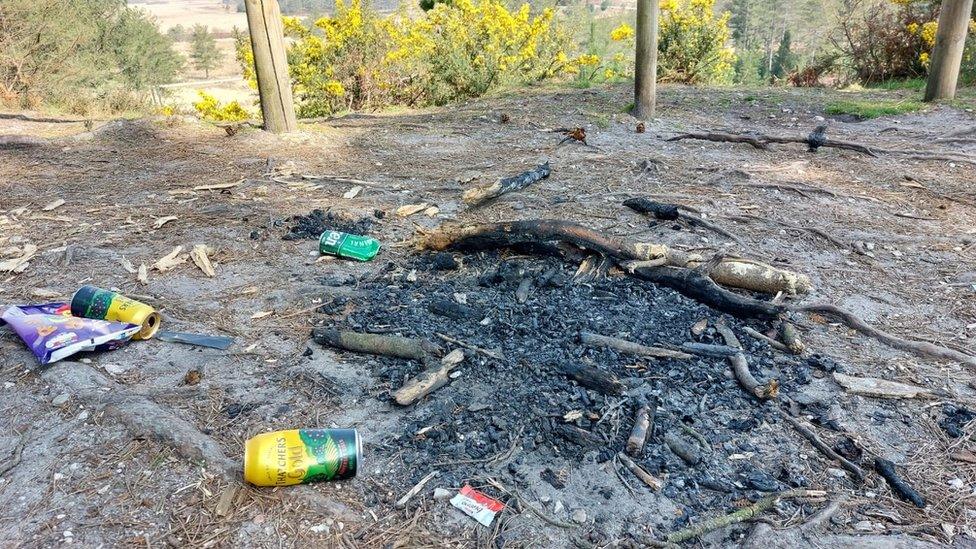Studland Heath: Fire at nature reserve extinguished
- Published
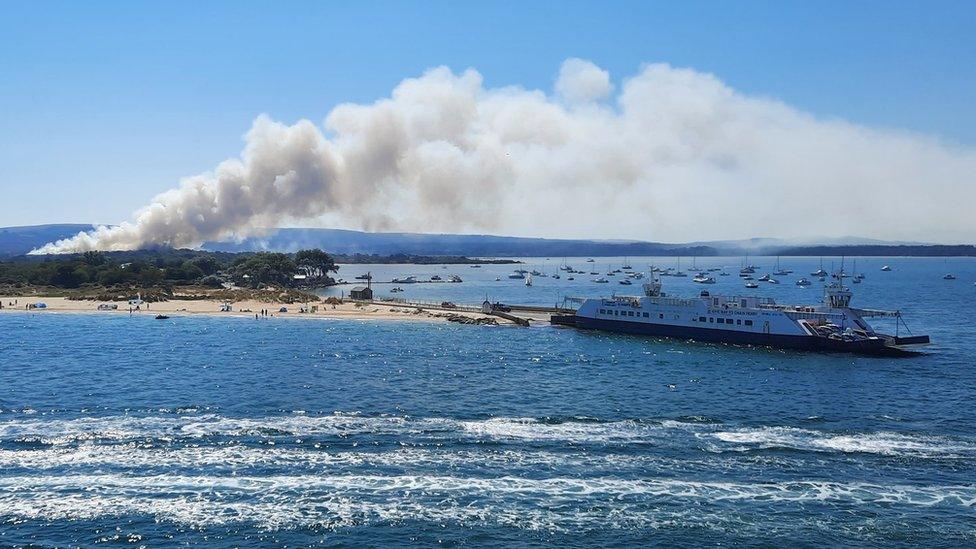
The chain ferry linking Studland to Sandbanks in Poole was used to get people off the beach after the fire broke out on Friday
A fire that tore through a nature reserve and forced the evacuation of a beach has finally been extinguished.
At its height on Friday, 90 firefighters tackled the blaze at Studland Heath in Dorset.
Dorset and Wiltshire Fire and Rescue Service (DWFRS) said almost five hectares (12 acres) of National Trust nature reserve had been destroyed.
The service said the fire, thought to have been caused by a disposable barbecue and campfire, was now out.
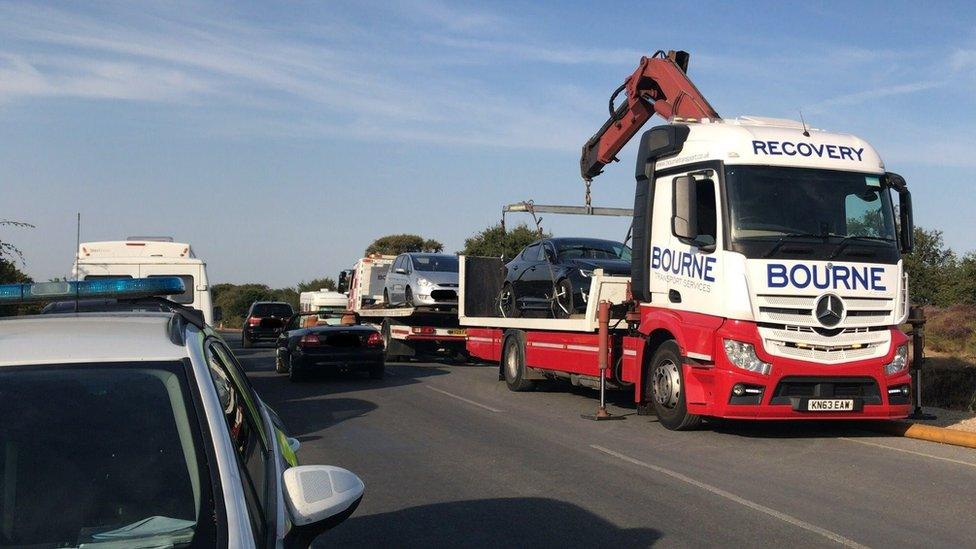
Vehicles blocking access were removed by police
Fire service group manager Brad Stevens said it was a "difficult and protracted" fire to bring under control.
"To have found evidence of a campfire and disposable barbecue at the heart of the fire was staggering, given the ban in that location, the many signs around the area, and the on-going media focus on the tinder-dry conditions and fire risk," he added.
A number of cars, ignoring parking restrictions, had to be moved from the roadside to allow emergency vehicles access during the fire fighting operation.
During the incident a suspected World War Two bomb was also found and dealt with by firefighters.
The unexploded device was found off Ferry Road on Saturday.
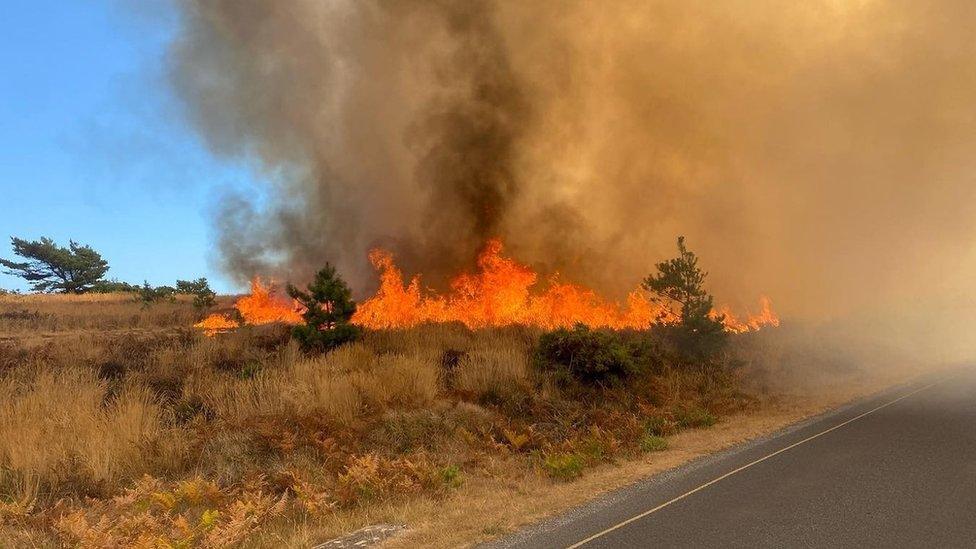
Smoke from the blaze, which engulfed undergrowth and gorse, could be seen from across Poole Harbour
Firefighters were alerted at about 13:00 BST on Friday and had to work in dense smoke which could be seen for miles around.
Flames leapt across the Isle of Purbeck, forcing police to evacuate Studland beach which had been busy with holiday-makers.
Studland Heath is a Site of Special Scientific Interest (SSSI) and home to all six species of native British reptiles, including the nationally endangered sand lizard and smooth snake, and the rare Dartford Warbler.
In a bid to reduce the numbers of disposable barbecues in use, several supermarket chains have stopped selling them during the UK heatwave.
On Friday, Co-op announced it was the latest to join the moratorium and said it would not sell the product while the dry spell continued.
Firefighters have strived to stress the dangers of careless behaviour when out in the countryside.
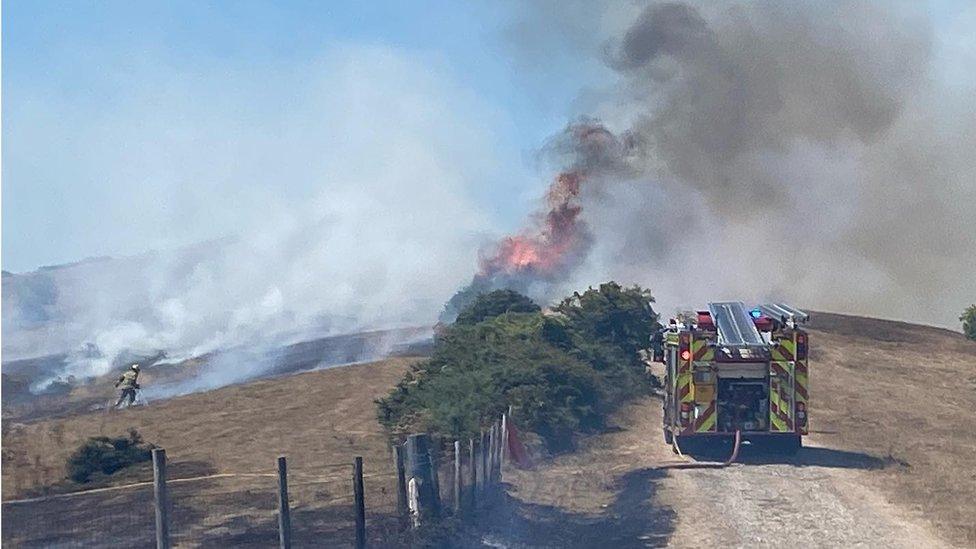
Studland Heath is a Site of Special Scientific Interest
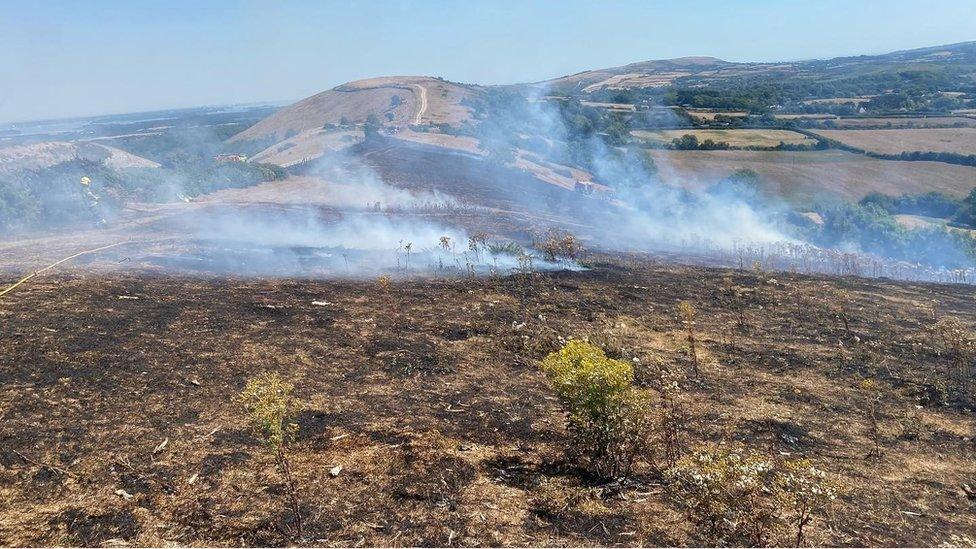
Even after the flames had been quelled the land was still smouldering

Follow BBC South on Facebook, external, Twitter, external, or Instagram, external. Send your story ideas to south.newsonline@bbc.co.uk, external.
Related topics
- Published14 August 2022
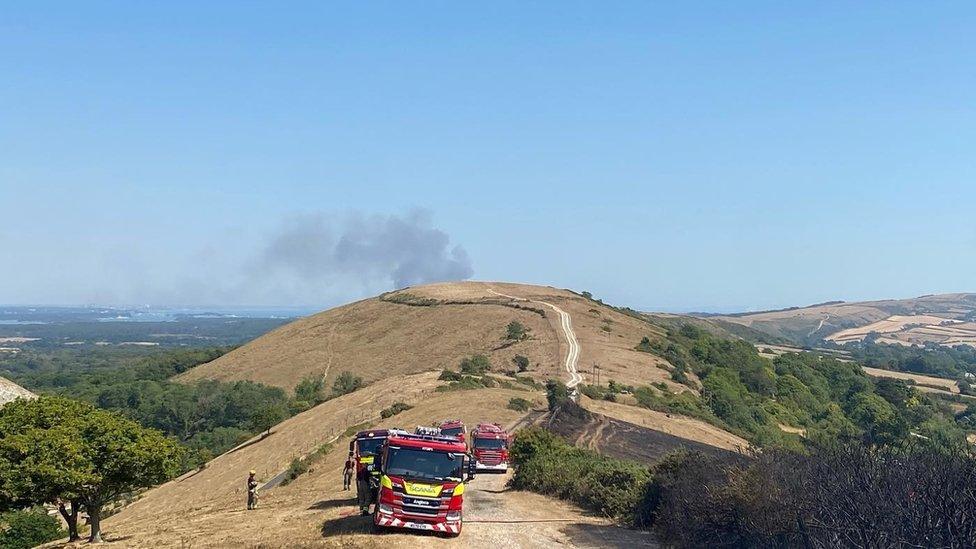
- Published13 August 2022
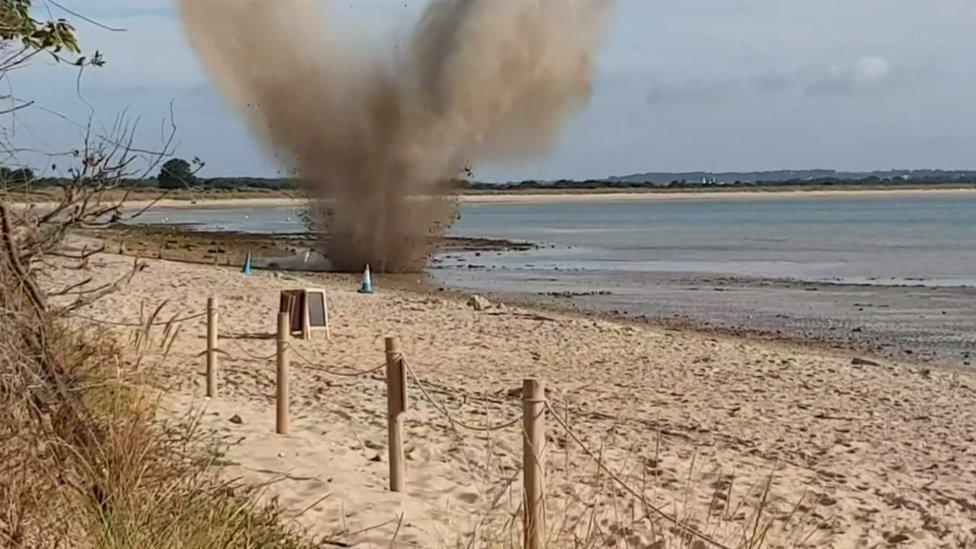
- Published13 August 2022
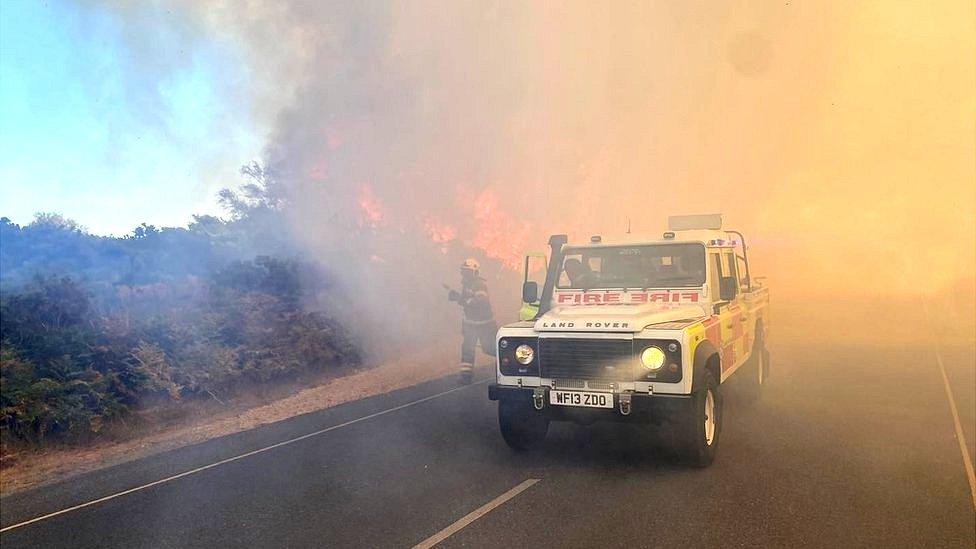
- Published18 May 2022
